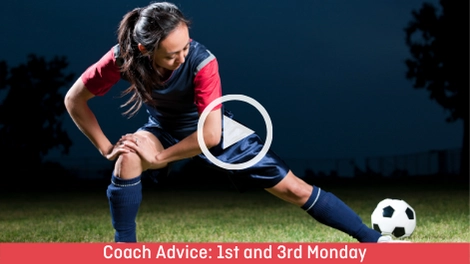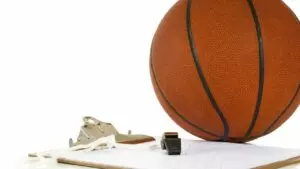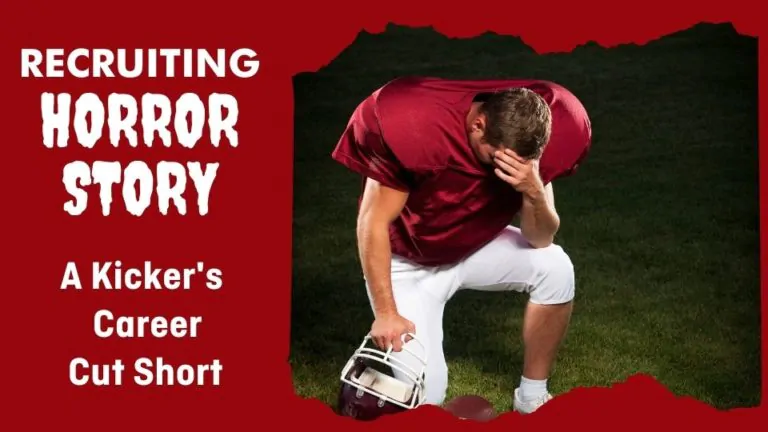McKinnon Pennell is currently the director of operations for the Old Dominion University Division 1 Women's Soccer team. Prior to this position, he worked as an assistant coach at his alma mater, University of the South, Sewanee, where he was a member of their Men's Soccer team. After his playing career, he worked in the corporate world for one year before returning to college athletics as a coach. Pennell's experience from being an athlete, coach, and director of operations in the NCAA's D3 and D1 levels provides unique insights. Both prospective recruits and anyone seeking to work in collegiate athletics will benefit from hearing Pennell's perspective.
How did you get to the position you're in today?
I went to a DIII school in Tennessee called University of the South in Sewanee. I played soccer on the men's team there. Graduated in 2018. After I graduated, I spent a year working in banking, decided that's not what I want to do, then got into coaching back at my alma mater on the women's team. I spent two years as an assistant coach, the second year, [as] the recruiting coordinator for the program. Then this past August, I moved to Old Dominion University, where I am the Director of Operations for the women's soccer team.
Related school ratings: University of the South, Old Dominion
How does being a director of operations compare to being an athlete?
It's definitely different being a university employee. You… get to see a lot more of the background of what's going on. The time and effort that goes into everything, from the specifics within the program, [to] how practices are run, all the logistics of hosting a home game/going to an away game, all the travel. The process of bringing student athletes to the team… Selling the university, which is a lot of stuff you don't see as a student-athlete… The coach might tell you some of the programs you're interested in… but you don't really see how that process began, all the correspondence happening, and the background discussions.
What recruiting advice do you have for high school athletes?
1. Take time to do your research before you reach out to a coach. Be able to talk about the university. Be able to talk about why you're interested in that school. Don't send out mass emails just with the hopes of some coach randomly liking you. Coaches want to see you put in the time and effort to learn about their school, so if there is mutual interest, an offer is made, you come to the school, [and] you're not hating it and wanting to transfer after a year…
2. Take the time to think about what you want in a school. How big of a school do you want to go to? Geographical location: what are you interested in? What aspects of a team and team culture are you looking for?
Related: How to Find the Right Fit
What about the difference between being a director of operations and being a coach?
It's very different. The NCAA has rules that on a specific staff at the Division I level, there is only allowed to be 4 specific coaches who actually can be involved in coaching, so [they] can run drills, or even touch a ball with a player. So… back at Sewanee I was running practice sessions, doing one-on-one time with players when they needed extra work on stuff. [An]other big difference is there is also a rule that… only 3 coaches on a staff at the Division I level are able to do off-campus recruiting, so I'm currently not allowed to do any off-campus recruiting. Any recruiting I'm allowed to do is through on-campus ID camps… Right now, a lot of my work is keeping track of player performance statistics and analytics. Doing a lot of administrative, office work. Organization of travel and stuff like that. I'm still at every practice, at every game, but more of my work is done in the office compared to on the field.
Can you talk about transitioning from being a student athlete to leading student-athletes?
It was beneficial for me to have a year between when I graduated and became a coach because that gave me time to separate myself, especially going back to the school that I went to… Having time to separate myself from people I went to school with and have seen me as a peer, to being in a different position where now I'm coaching them, so that is a big transition. You're no longer friends with these people, you're the coach, you're also an authority figure…
There's so much time and effort that goes into planning. As a student-athlete, you're showing up to practice, showing up to games. You might watch some film on your own, stay in shape, get some touches on the ball outside of practices… It still feels like a second job in addition to being a student, but you definitely have a lot more free time and flexibility. As a coach, it becomes more or less your whole life. You're spending so much time on it, so that transition from showing up 3 hours every day to “I have so much work to do outside of practice.”
What was your motivation behind going into banking and what compelled you to transition to a career in sports?
I just always thought I would want to go into business. My dad was in business, so that made sense. I didn't specifically know what I wanted to do within the banking world, which was probably an issue, and when I took the position I did, I had a connection with the company, and they offered me the job. And, it was in New Orleans, a city I really liked, so I thought I might as well take it. And, I wasn't a huge fan. There are so many regulations within the banking world. I didn't like how formal the setting is. The more casual, not 9-5 job that being a coach is was way more beneficial to me, so after a year I was like “I can't see myself being in banking long term.” I'd been thinking that for a while, but my first summer after I graduated, the women's soccer position opened up at Sewanee. It was my alma mater, if there's ever a time to do it, it's now.
Related: Recruiting Horror Stories™: My Family Influenced Me to Go to the Wrong School
What are some important characteristics coaches look for in recruits?
We're looking for naturally good athletes. Players who have competed at a high level, definitely high school, but 99% of our recruiting is done through club soccer. So, you're playing at a high level. Which generally means your team is going to be invited to showcases that we're recruiting at. Typically there's 4 or 5 showcases each year that we'll be attending, so it's already a good sign if your team is going to be attending one of those.
Off the field… you need to be accepted into the school. Once you get to the school, high school has prepared you to be successful once you get here. Our team GPA at Sewanee was a cumulative 3.4. At ODU I believe it was a 3.5, so you're going to come in and you're going to take your academics seriously because that's something that's important. Rarely are our players going to be doing soccer past their four years of college, so we want you to be prepared for the world after.
You're going to be a good teammate. You're not going to cause any drama. You understand that, when it comes to playing time… if you're not getting the playing time you want, not causing issues about that. Realizing that this is a team sport; it's not just about you getting your own playing time, but about what's going to make the team the most successful.
Players that are going to be dedicated to the sport, who are going to put in the time and effort during the off-season to set themselves up for success so when they come into pre-season they're in shape… Self-motivated players. Ones who have passion for the sport. And just people who have good character.
Related: 6 Essential Categories Recruits Will Be Evaluated on
Have you learned anything new about recruiting since becoming a Director of Operations?
Less from being a director of ops and more from going from the Division III level to the Division I level. Compliance-wise, there's so many more rules when it comes to Division I than there are Division III. At Division III, there's not that big of a difference between an unofficial and official visit, whereas it becomes so much more formal when it's an official visit at the Division I level.
What inspired your transition from assistant coach to director of operations?
You get into coaching to actually coach, and I'm not provided that opportunity as Director of Ops. so the main reason I took the role is to get to a higher level of soccer. I've enjoyed it. I think I would like to stay at the Division I level if I can make it work, but ideally, [being] director of operations is not part of that future.
* Originally published on December 6, 2021, by Paramveer Chohan






